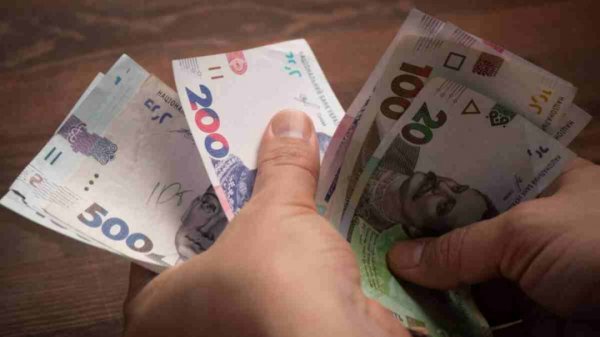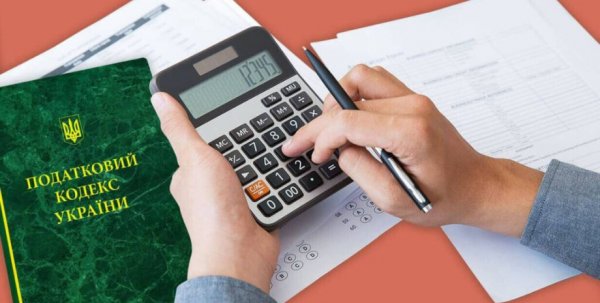
We analyze the measures provided for by the National Revenue Strategy until 2030 and how they will affect Ukrainians and the Ukrainian economy.
Ukraine has completed the last of the current tasks within the framework of the current cooperation program with the IMF: the government approved the National Revenue Strategy for 2024-2030. The Ministry of Finance published this document the day before. The strategy is designed to increase the country's own income by reducing dependence on external assistance. It was decided to achieve this goal not because of an increase in taxes, but by improving their administration, eliminating unjustified benefits, reducing the number of exceptions to general fiscal rules, minimizing the opportunities for the use of “schemes” of evasion and tax minimization and avoiding corruption due to depersonalization of data on payers . All this together should not only strengthen the fiscal capacity of the state, but also speed up the adaptation of our tax and customs legislation to EU standards and stimulate post-war recovery and economic growth.
NEW CUSTOMS CODE, DIGITALIZATION AND SEPARATION OF TAX INFORMATION
Almost half of the rather voluminous document (almost 150 pages in total) is devoted to the future renewal of the Tax and Customs Service and changes in approaches to the formation of customs and tax policy. Actually, until the fiscal authorities change their approaches to the current decision-making at their own discretion, in particular, in matters of punishing or pardoning as they please, the implementation of other measures provided for in the document, including a number of unpopular ones, will not begin, the Ministry of Finance assures.
That is, first of all, they will limit the interference of controllers in business activities through the consolidation of data and the transition to working with anonymized information, when fiscal officials will not have direct access to the personal and registration data of the payer, hidden behind digital codes in registers. In practice: if a tax official identifies irregularities in the work of an enterprise whose reporting appears under code 313233, he will not be able to identify this business in order, for example, to call its owner and offer “for a fee” to reduce the tax liability, cancel or minimize the imposed penalties sanctions or, first of all, return VAT to him.

The Ministry of Finance believes that this will strengthen confidence in the state, and only then can tax and customs policies be changed, based on updated requirements for the performance of employees of these bodies. In general, the Strategy provides for several dozen different technological and organizational measures aimed at preventing corruption in customs and tax authorities.
At the same time, Customs will have the right to engage in operational-search activities and conduct pre-trial investigations in cases of smuggling, the decision to criminalize which has already been made and agreed upon by the president.
2024, despite the continuation of the war, should be decisive for the preparation of institutional upheavals. The phased implementation of the remaining key reforms as part of the implementation of the National Strategy is scheduled for 2025-2027. And some innovations – for example, the revision of the simplified taxation system and the introduction of a progressive scale of taxation of personal income – are defined as measures for the long term. More about this.
CHANGES FOR CITIZENS: PROGRESSIVE PIT SCALE AND LINKING THE REAL ESTATE TAX TO ITS MARKET VALUE
It is expected that the average wage in the country will grow annually by 4-5 thousand hryvnia: 21,809 hryvnia next year, 25,732 in 2025, 30,260 hryvnia in 2026. So changes are planned in the taxation of wages and other income of citizens.
The main proposal is a return to a progressive tax scale. Parameters and specific rates will be determined separately, depending on the conditions of the reform. The point is to eliminate abuses in employment and increase budget revenues.

Let us remind you that the personal income tax is 18% and has been in effect since 2016. It was introduced due to the impossibility of that time to effectively control the real incomes of citizens. In addition, today it has already become obvious that many entrepreneurs abuse the fact that they choose the status of self-employed persons (SPE) for their employees instead of concluding a standard employment contract with them. Not least due to the low rate (5%) of taxation of personal income within the SSO compared to the personal income tax rate of 18% and military duty of 1.5% for an employee.
A differentiated approach to real estate taxation is also proposed.
Before the war, the state received from such taxation only 8.7% of the total revenues from local taxes and fees, or 2.2% of the total tax revenues to local budgets. Such insignificant revenues are explained by the fact that the current real estate taxation system is somewhat unfair – it is based on the area of properties based on the minimum wage. At the same time, owners pay the same amount of tax, regardless of the location of such objects – be it luxury property in the city center or something located on the outskirts of cities or in villages.
Therefore, the authors of the Strategy believe that it is more fair to pay taxes taking into account the assessed value of property. But for this we will still have to develop a methodology for its assessment. So the introduction of a differentiated scale of real estate taxation is not a quick thing.
CHANGES FOR BUSINESS: CANCELLATION OF BENEFITS AND REDUCTION IN THE NUMBER OF TAX “SIMPLIERS”
Several chapters of the National Revenue Strategy are devoted to changes in business taxation. The emphasis is on unifying approaches to taxation and minimizing exceptions to general rules. In particular, regarding the provision of benefits.
As an argument in favor of their abolition, the authors cite statistics according to which in the first half of 2023, the state budget lost 57.5 billion hryvnia due to tax benefits. And for the whole of last year – 76.3 billion. The largest share falls on VAT benefits (over 65%). More than 30% of the gates are related to property tax benefits. The state loses up to 3 billion hryvnia a year due to income tax benefits.

The simplified taxation system is also under attack, because it is recognized that entrepreneurs abuse it too much. The strategy provides for a gradual limitation of the number of Ukrainian “simplified people”.
Changes for legal entities and individual entrepreneurs operating on a simplified taxation system will be different.
1. Legal entities will generally lose the opportunity to work with such a tax benefit. But the process of their return to “normal” tax conditions will be gradual. Over three years, starting in 2025, income tax rates will gradually increase to 18%.
2. Individual entrepreneurs of groups 2 and 3 “simplified” will be combined into one group. Tax rates will depend on the type of activity and will range from 3% (trade in consumer goods) to 17% (for some services). However, that's not all. In the longer term, rates are planned to be increased in order to stimulate the transition of entrepreneurs to a common taxation system.
3. The rule on mandatory RPO (classic or program) will apply.
4. Exceptions to documentary evidence of the origin of goods will be abolished, which should minimize sales of smuggled and counterfeit goods.
5. Accounting will become mandatory, which is unpleasant news for many individual entrepreneurs. The good news is that accounting will be simplified as much as possible in order to minimize the costs of maintaining it.
6. Individual entrepreneurs of the 1st group in the future will not pay a fixed contribution, as now, but a tax on the income received. Accordingly, here too the importance and role of accounting and reporting are strengthened.
7. 4 groups plan to expand the tax base for individual farmers, starting with taxation based on land valuation.
8. But it will soon be possible to register and close a sole proprietorship without any problems: the procedure is automatic and is associated with the opening or closing of a business account in a bank. Separate registration of a business entity in the case of individuals is not required. And money received by an entrepreneur into other accounts will be subject to personal income tax on a general basis.

“Back in 2021, based on a quantitative study of simplified currency, we prepared a note where, in order to reduce the abuse of SSO, we recommended mandatory VAT for trade in simplified currency, the reorientation of 1-2 groups to small businesses in specific types of activities and complete fiscalization of the 3rd group . The steps from the National Strategy are broader and in some places tougher, sometimes the “devil” may be in the details (primarily in differentiated rates, the threshold for VAT, as well as tax control due to bank account balances), but in general these are steps in the right direction. Towards a “simplified system”, which gives freedom and growth opportunities for truly small businesses and cuts off the oxygen for the “schematism” that distorts the competitive environment in the country,” commented Yuri Gaidai, senior economist at the Center for Economic Strategy.
Although in the comments to his message, as well as under other thematic publications on social networks, we find a lot of criticism of the document specifically in terms of cooperation between the state and individual entrepreneurs. Many believe that eliminating benefits during post-war reconstruction is inappropriate. After all, preferential conditions are often perhaps the main incentive for economic development… In a word – and don’t go to a fortune teller – these changes proposed by the National Income Strategy in the process of implementation will cause more than one heated debate. So Ukrinform will definitely return to this topic.
Proposals to bring VAT into line with EU legislation and the abolition of reduced rates and benefits that are not provided for by the relevant EU directives are also perceived quite critically. But. Let us remember that these are steps for the future, which will begin to be implemented no earlier than a year or two after the end of the war. This also applies to intentions to increase excise taxes on fuel, alcoholic beverages and tobacco products to the level of minimum rates in the EU.
So, Ukraine faces difficult practical work ahead to implement the National Revenue Strategy. And, of course, active public and expert discussion of the document. Moreover, the Strategy itself provides for the coordination of specific parameters of the envisaged changes, including the rates and timing of changes in individual taxes. At the same time, one should take into account the main force majeure – uncertainty about the duration of the war, on which both macro-financial and other important indicators that determine the “threshold” from which the reforms envisaged by the National Strategy will start will depend.
Vladislav Obukh , Kiev
